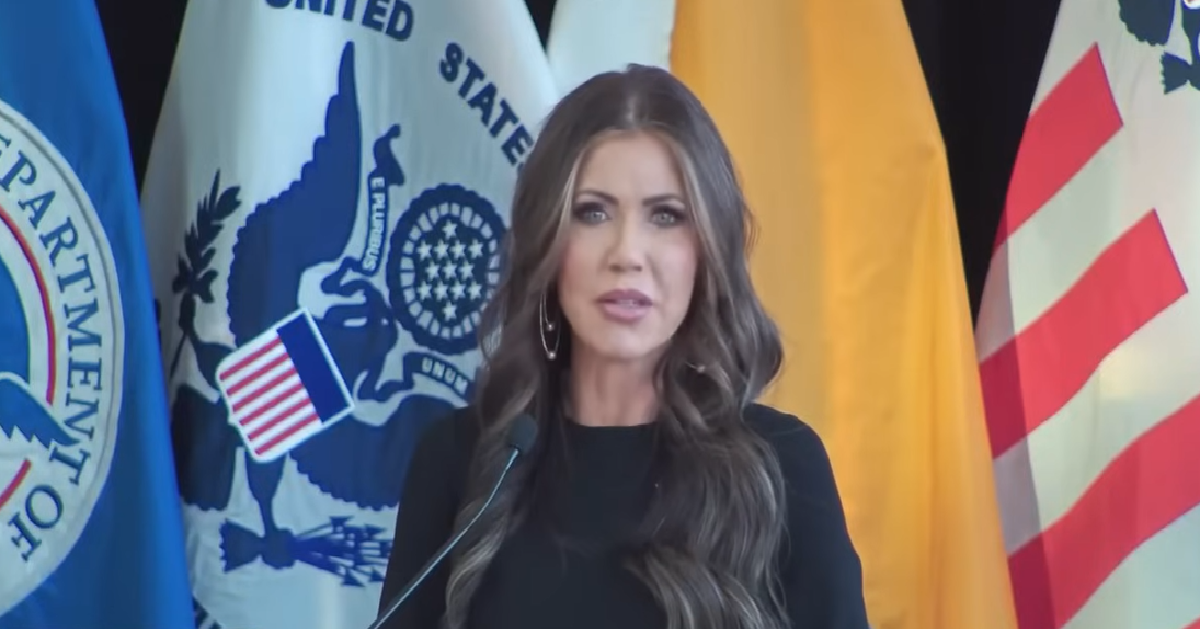DANIEL VAUGHAN: Luigi Mangione Is No Hero
In the immediate aftermath of the initial assassination attempt on Donald Trump, the trendy thing to say among Democratic Party members was, "Violence is not the answer." If they said it once, they said it a thousand times, from politicians to every pundit on national television. What's notable about the cold-blooded murder of UnitedHealthcareGroup CEO Brian Thompson is that the "violence is not the answer" crowd has vanished.
Luigi Mangione, the alleged killer in the CEO murder case, called executives like Thompson "parasites." He claimed we have the "most expensive healthcare system in the world" and added, "Frankly, these parasites simply had it coming." It's the self-rationalization of a lunatic, trying to give himself the moral justification for gunning down a husband and father of two.
Some people, in response, put up Obama-style hope style "hope" posters showing Thompson getting gunned down. And I had more than one liberal friend effectively shrug their shoulders and say they're right on healthcare being a problem for Americans.
There's some irony in this, of course. Mangione is not some man of the people. He's the definition of the 1%. His family comes from a deeply wealthy background, and he has a claim to that fortune. He went to the Ivy Leagues, high-end prep schools, and all the high-society markers of a man advancing in corporate America.
But that privilege didn't stop him from bringing about his form of execution-style vigilante justice, where he was the judge, jury, and executioner. The video that showed the entire event immediately went viral around the internet. Everyone could see the moment a man's life was snuffed out by a radical bent on wrecking the world around him.
And I am in vain waiting for anyone to utter the words, "Violence isn't the answer." The opposite is happening. Newsweek ran a piece mocking conservatives for pointing out the obvious: murdering people is wrong. Taylor Lorenz, an ex-Washington Post journalist, told Piers Morgan she felt joy over the murder.
This stands in stark contrast to the Daniel Penny case, where he used a chokehold to take down Jordan Neely, who threatened multiple people on the subway. Alvin Bragg tried convicting him of murder, but a jury acquitted him of all charges. This case gets blasted by the same activists on the left as the wrong kind of vigilante justice.
In reality, the Daniel Penny case is about a Good Samaritan responding, with the problem being that Bragg brought charges. The family, in that case, continues to press civil charges.
In both cases, we get a form of vigilante justice, and only one is getting praised, and it's the assassination of an executive with a major corporation. There's a presumption getting baked into both stories that the executive is more guilty than anyone and the crazy guy on the subway with a mile-long rap sheet is innocent.
The anger from those against insurance executives is nonsensical. Most of that cohort want government-run healthcare. If they get their claims denied by the government, do they want vigilantes murdering Senators and Presidents over that?
Charles C. W. Cooke is entirely correct when he writes, "Our prohibition on murder is absolute. It is not contingent on the nature of the victim, or upon his assumed politics, or upon the legal actions he takes within a complicated social system that, by its very nature, is liable to inspire passionate debate. That being so, it remains the responsibility of every citizen who cherishes our constitutional order to understand that they have been accorded no exceptions to its rules, and that their denunciations of unlawful violence must thus stop long before they get to the "but . . ."
Trust fund babies from the Ivy Leagues do not have some iron grip on reality that everyone else is missing. The same is true of various elites trying to find ways to justify the killing. There is no justification - there's no "but" you can attach to the end of the sentence to justify it.
Again, this is the same group that declares political violence is never justified; it isn't the answer. We're outside the confines of the election, and suddenly, they've lost that part of their moral compass. You believe in nothing if your morality only applies when a major election is on the docket.
If the justice system finds Luigi Mangione guilty of these heinous crimes, we need severe punishment. His killing was not a normal murder; it was an attack on society itself. He declared himself outside the law and morally upright for murdering another man.
If the rule of law means something, at a bare minimum, it means stopping someone like that.






